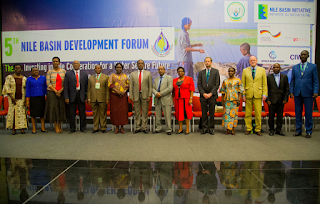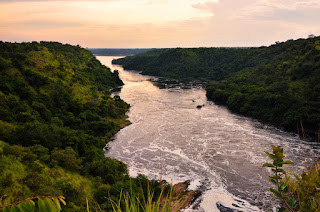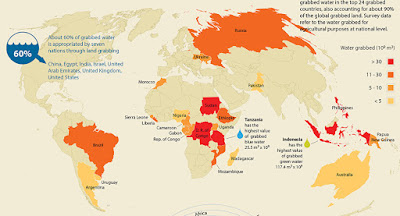The Nile Basin Initiative
Hello everyone! Welcome back to my blog. My last post covered the specific case of the Grand Ethiopian Renaissance Dam and highlighted the political tensions this sparked with upstream countries-mainly Egypt, due to an ongoing historical and cultural debate on who has the rights to the Nile’s waters. I hope to go into the historical debate surrounding colonial and post-colonial legacies to the allocation of the Nile’s resources in the next few blog posts; however this post will look specifically at an initiative set up to target such issues and find solutions and compromises that provide equity to all riparian countries on the Nile.
Nile Basin Initiative
The Nile Basin Initiative is an international treaty set up to improve the collaborative efforts amongst the Blue Nile’s riparian states in managing the use and development of the Nile’s waters. The initiative was set up in 1999, and was signed by 10 Nile Basin countries namely; Burundi, DR Congo, Egypt, Ethiopia, Kenya, Rwanda, South Sudan, The Sudan, Tanzania and Uganda (Nile Basin Initiative, 2018). The scheme is said to be the “first basin-wide agreement regarding the Nile River” (Suvarna, 2006 p455), and thus is an important program in understanding the development of the political understanding of transboundary water resources within the Nile Basin countries.
The motivations of this initiative involve the following quoted from the Nile Basin Initiative website (2018):
- To develop the Nile Basin water resources in a sustainable and equitable way to ensure prosperity, security, and peace for all its peoples.
- To ensure cooperation and joint action between the riparian countries, seeking win-win gains
- To target poverty eradication and promote economic integration.
- To ensure that the program results in a move from planning to action.
 |
| Dignitaries posing for a group photo at the 5th Nile Basin Development Forum (Nile Basin Initiative, 2017) |
Prior to the introduction of the NBI, Egypt had threatened to go to war with upstream riparian’s to prevent their ability to tamper with the flow of the Nile. As quoted in Kimenyi, and Mbaku’s book ‘Governing the Nile River Basin: The Search for a New Legal Regime’ (2015 p72) “tampering with the rights of a nation to water, is tampering with its life; and a decision to go to war on this score is indisputable in the international community”. Egypt’s claims to the rights of the Nile were heavily disputed, and thus 11 countries attempted to create a legal framework to improve the peaceful coexistence of Nile river basin states. This initiative was supposedly the first step towards an integrative approach to resource management over the Nile, and acted as a starting point to the future of development on the, giving once powerless nations a voice and a say over the use of this transboundary resource.
After forming the NBI three institutions were set up;
1) NBI Secretariat (Nile-SEC), focusing on providing dialogue platforms for the learning and exchange of information for stakeholders at all levels (Nile Basin Initiative, 2018).
2) Eastern Nile Technical Regional Office (ENTRO), one of the three centers of the NBI with a similar vision but focusing solely on the Eastern Nile (Egypt, Ethiopia and Sudan) (Nile Basin Initiative, 2018).
3) Nile Equatorial Lakes Subsidiary Action Program Coordination Unit (NELSAP-CU), an investment program promoting power development, power trade, water resources management, management of lakes and fisheries and agricultural development (Nile Information System, 2013).
On top of this, a variety of sub-projects and programs were implemented with support from regional governments, international bodies and the World Bank. The NBI has played a significant role in enhancing the understanding of the need for a collaborative approach to resource management, and been vital in improving inter-regional collaboration and communication, however this program wasn’t supposed to be a permanent solution to the regions enduring conflict over the allocation of water resources, instead it’s “a temporary framework for fostering dialogue, information exchange, and technology assistance as well as creating joint development initiatives in furtherance of transboundary goals” (Kimenyi and Mbaku, 2015 p75).
The NBI, like most other policies, has its challenges and complications which I won’t go into in this blog post; however in my next few blog posts I will provide a historical background to provide some context into how significant the NBI is on a long-term scale. It was a milestone of independence for African countries, setting aside colonial treaties regarding water management that didn’t always have the well-being of African communities as a top priority.



Comments
Post a Comment